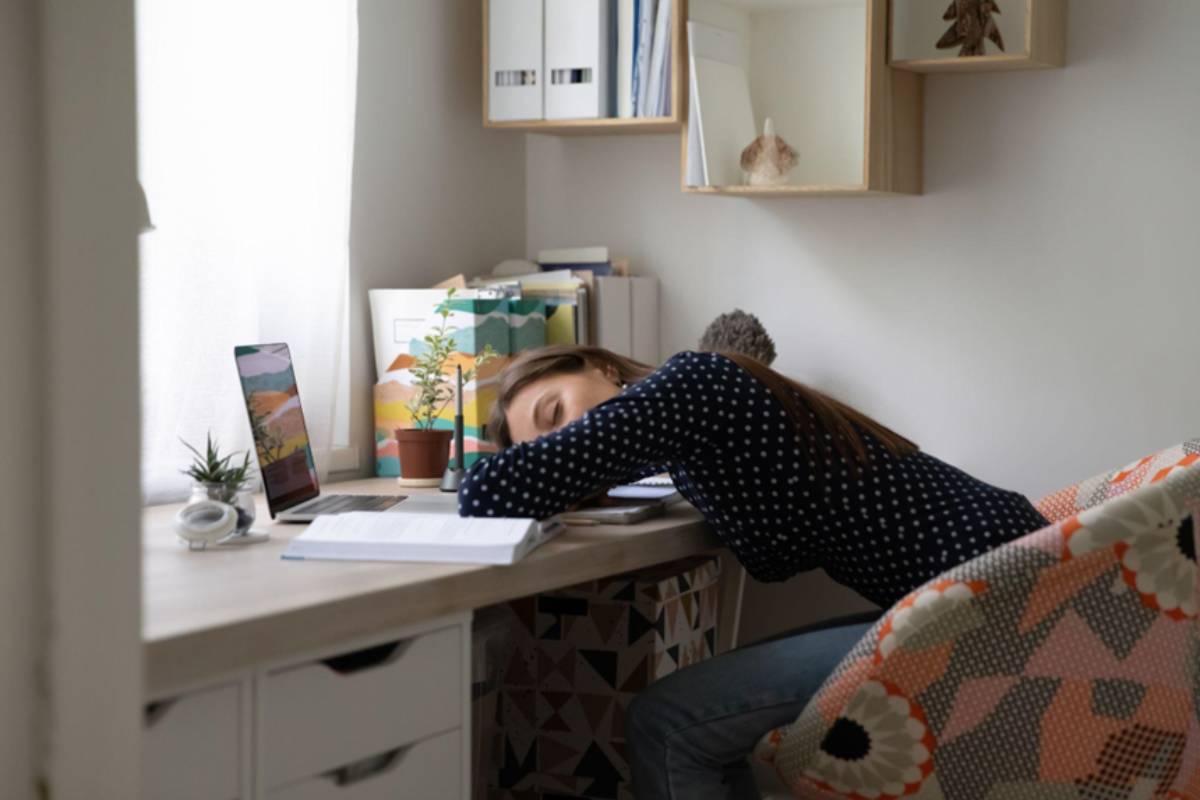Sleep is the cornerstone of good health and well-being because it’s vital for physical recovery, mental clarity, and emotional stability. Despite its importance, quality sleep can be challenging due to the many distractions that can invade your bedroom at night. Let’s shine a light on these pervasive sleep distractions and provide you with practical, actionable solutions to help eliminate them.
Table of Contents
1. Uncomfortable Sleeping Environment
One of the most common factors affecting our sleep quality is our sleeping environment. An unsupportive mattress, the wrong type of pillows, and a cluttered room can turn what should be a sanctuary into a source of sleepless nights.
One solution is investing in one of the best mattresses available in the market that provides the right support and comfort for your body type and sleep style. Equally important are your pillows, which should support your neck and head naturally. Pillows that are too high or too flat can lead to neck strain and discomfort, disrupting your sleep. Additionally, using bunkie boards can enhance the support provided by your mattress, especially if you’re using a platform bed or require additional support beneath your mattress for a firmer sleep surface.
Beyond the bed itself, the overall ambiance of your bedroom plays a significant role in your sleep quality. A cluttered, chaotic room can subconsciously elevate stress levels, making it harder to relax. Keeping your bedroom clean and inviting promotes a peaceful mindset, preparing you for a restful night’s sleep.
2. Noise Disturbances
One of the most prevalent sleep distractions is noise disturbances. These noisy distractions can range from the persistent hum of traffic outside your window to loud neighbors who are night owls to a snoring partner. These disturbances can significantly interfere with the quality of your sleep, but the good news is there are several strategies to combat them.
White noise machines are among the most effective solutions. These devices produce a consistent, soothing sound that can mask disruptive noises. Another option is earplugs, a simple yet effective tool for blocking unwanted sounds. Lastly, if you’re willing to invest in a quieter environment, soundproofing the room can significantly reduce noise levels.
3. Temperature Fluctuations
Temperature fluctuations in the bedroom are another common sleep distraction. Whether it’s a room that’s too hot in the summer or too cold in the winter, these extreme temperatures can make it difficult for you to fall and stay asleep.
The key to managing these fluctuations is using appropriate bedding comforters and making smart thermostat adjustments. Bedding comforters, especially those made from breathable materials, can provide the perfect insulation for both warm and cool nights, adapting to your body’s needs without overheating or leaving you cold. Additionally, adjusting your thermostat to maintain a comfortable sleeping temperature — generally recommended between 60 to 68 degrees Fahrenheit — can help your body relax and fall into a deeper sleep more quickly.
4. Light Pollution
Light pollution is another common sleep distraction that can greatly affect sleep quality. This can come from various sources, such as glaring streetlights, the blue light from electronic devices, or even an early sunrise.
Luckily, there are some effective solutions to combat distracting light. Installing blackout curtains can shield your bedroom from unwanted external light, creating a dark, cave-like environment that signals to your brain it’s time for sleep. If you’re sensitive to even the smallest amounts of light, an eye mask can be a game-changer, providing personal darkness regardless of your surroundings.
Additionally, limiting screen time before bed is crucial. The blue light from screens can interfere with the production of melatonin, the hormone responsible for regulating sleep. Putting away electronic devices at least an hour before bedtime allows your body to naturally prepare for sleep, reducing the time it takes to drift off.
5. Stress and Anxiety
The quiet of the night often brings a flood of pre-sleep worries, overthinking, and anxiety about the tasks awaiting us the next day. These mental distractions are formidable barriers to falling asleep, as they keep the mind active and alert when it should be winding down.
One effective solution is meditation. By calming the mind, meditation can help you transition into a restful sleep. Another strategy involves writing a to-do list for the next day before bedtime. This technique can offload worries about forgetting tasks, allowing for a more peaceful sleep. Lastly, relaxation techniques such as deep breathing, progressive muscle relaxation, or visualizing a peaceful place can be beneficial in reducing stress and anxiety.

Lifestyle Factors Affecting Sleep
In addition to these distractions, our daily habits and routines play a significant role in determining the quality of our sleep. Factors such as caffeine consumption, irregular sleep schedules, and a sedentary lifestyle can significantly disrupt our sleep patterns, leading to difficulties in falling asleep or staying asleep throughout the night. Here are some lifestyle changes you can make to help foster better sleep habits:
- Be mindful of caffeine intake: Caffeine is a stimulant that can remain in your system for several hours, so limiting coffee, tea, and other caffeinated beverages in the late afternoon and evening can help prevent sleep disturbances.
- Establish a regular sleep schedule: Going to bed and waking up at the same time every day, even on weekends, helps to regulate your body’s internal clock, making it easier to fall asleep and wake up naturally.
- Incorporate physical activity into your daily routine: Regular exercise promotes better sleep by reducing stress and anxiety levels and improving overall physical health. However, it’s best to avoid vigorous exercise close to bedtime as it can energize you, making it harder to wind down.
Conclusion
Addressing common sleep distractions can help enhance the quality of your sleep. Even the smallest changes, like using an eye mask or practicing meditation, can significantly improve your overall health and well-being. Try some of the suggested solutions above and see which ones work best for you.

